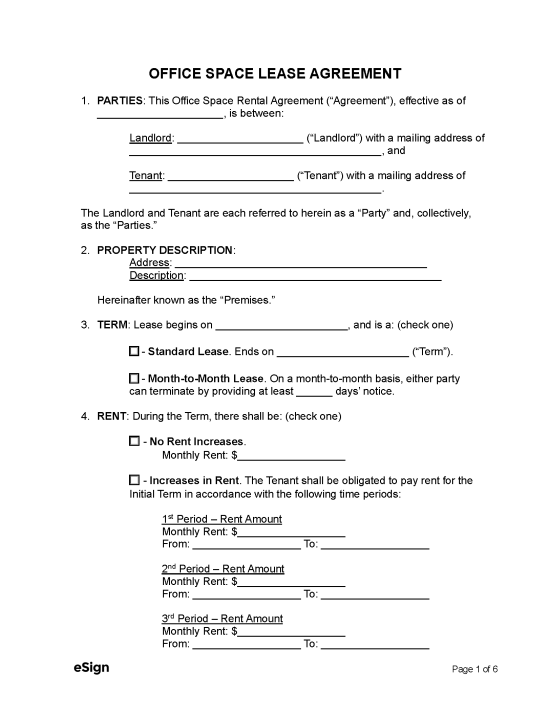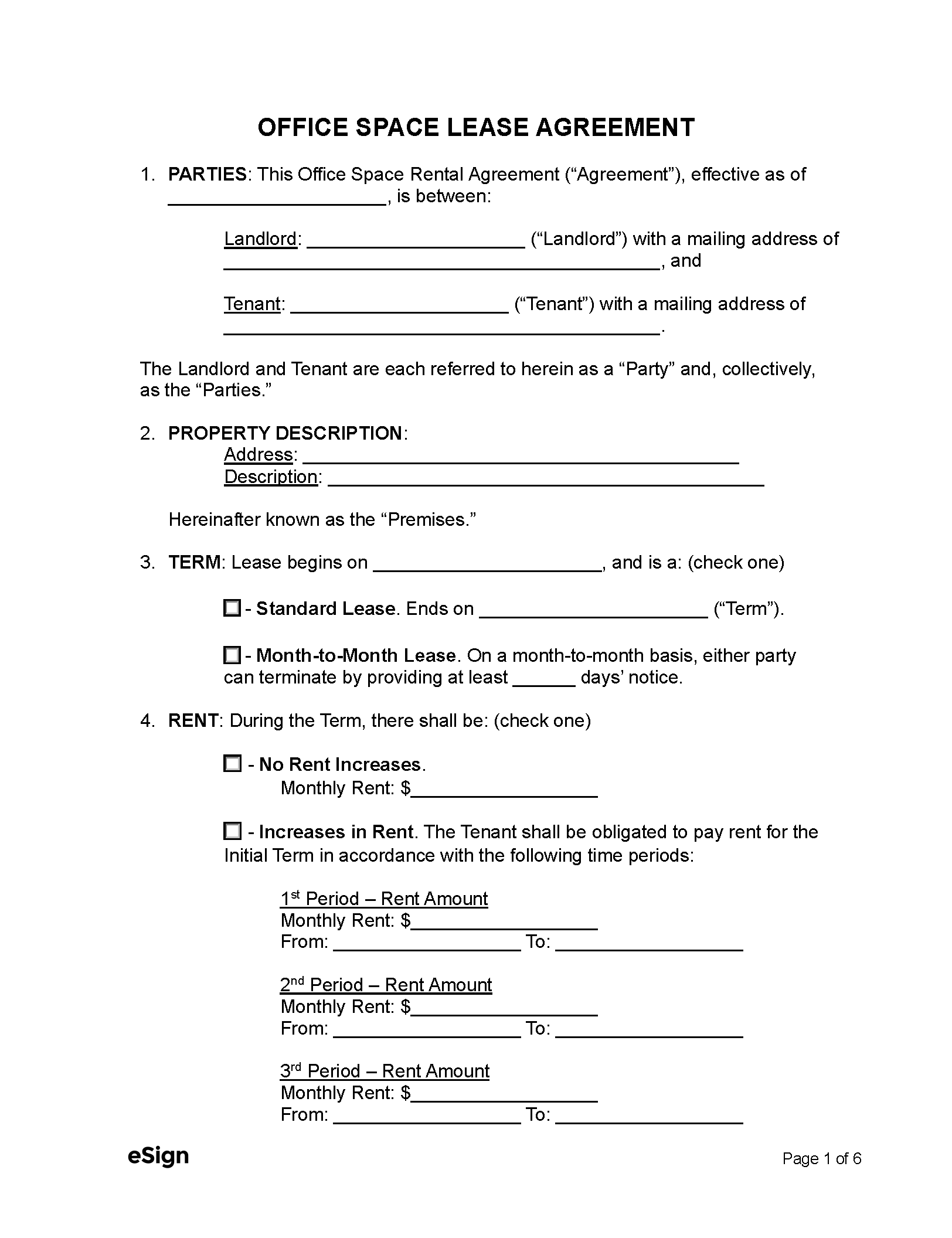What to Include in an Office Lease (8 items)
1. Term
The term of a lease (start and end dates) is one of the most important parts of an office lease. For smaller spaces (less than 2,000 SF), it is common for a lease to be 1 to 2 years. For larger spaces, it is common for the tenant to want a commitment for 3 to 5 years.
2. Rent
The rent usually consists of 2 items:
- Base Amount – This is what the tenant pays the landlord each month.
- Property Expenses – The tenant’s pro-rata share of the property expenses and consists of:
- Real Estate Taxes – Based on city and/or county assessments.
- Property Insurance – To repair or replace the building in case of fire or weather events.
- Common Area Maintenance (CAMs) – All costs associated with maintaining the building include landscaping, plowing, window cleaning, HVAC repair, maintenance, etc.
3. Specific Use Clause
Restricts a tenant from using the space for anything except for office-related activity. With office space, it is common for restrictions to be made in the lease to maintain quiet enjoyment for the other tenants.
Common use restrictions include:
- Food – The cooking or preparing of food.
- Medical – Performing medical procedures and seeing patients.
- Noise-Making Activity – Any activity over a specific decibel level of 80 (equal to an alarm clock).
- Retail – Selling of products or services directly to the consumer.
- Hazardous Materials – The handling, use, or storage of toxic items.
4. Delivery of Space
A landlord can deliver office space in 3 ways:
- As-Is. The tenant accepts occupancy of the space in its current condition. If maintenance or fit-up is needed, the tenant is usually granted a rent holiday (free rent) to upgrade the space.
- Vanilla Box (most common). The property is delivered with a fresh coat of white paint, unfurnished, and ready for move-in. All utilities and services are delivered to the property, and the tenant is responsible for any additional fit-up.
- Custom Build-Out. The landlord agrees to furnish and build out the space in accordance with the tenant’s floor plan and design.
5. Amenities
Landlords commonly offer amenities, included in the rent, to entice tenants. Some of these include:
- High-Speed WiFi – Considered to be 1000 Mbps or greater, most technology tenants will require a fast internet connection.
- Dedicated Parking – Especially in a city, the convenience of parking often plays a vital role in a tenant’s decision.
- 24-Hour Security – If the tenant has expensive office equipment or confidential files, security is important when deciding on office space.
- Meeting Rooms – To hold staff meetings or larger gatherings in one room.
- Reception Area – Allows the tenant to screen individuals prior to visiting their office.
- Fitness center – To allow the tenant and their employees to exercise on the premises.
- Daycare – Any minors of the tenant or staff can drop off and pick up their children at work.
- On-Site Food and Beverages – If common areas have free coffee, food, or vending machines.

